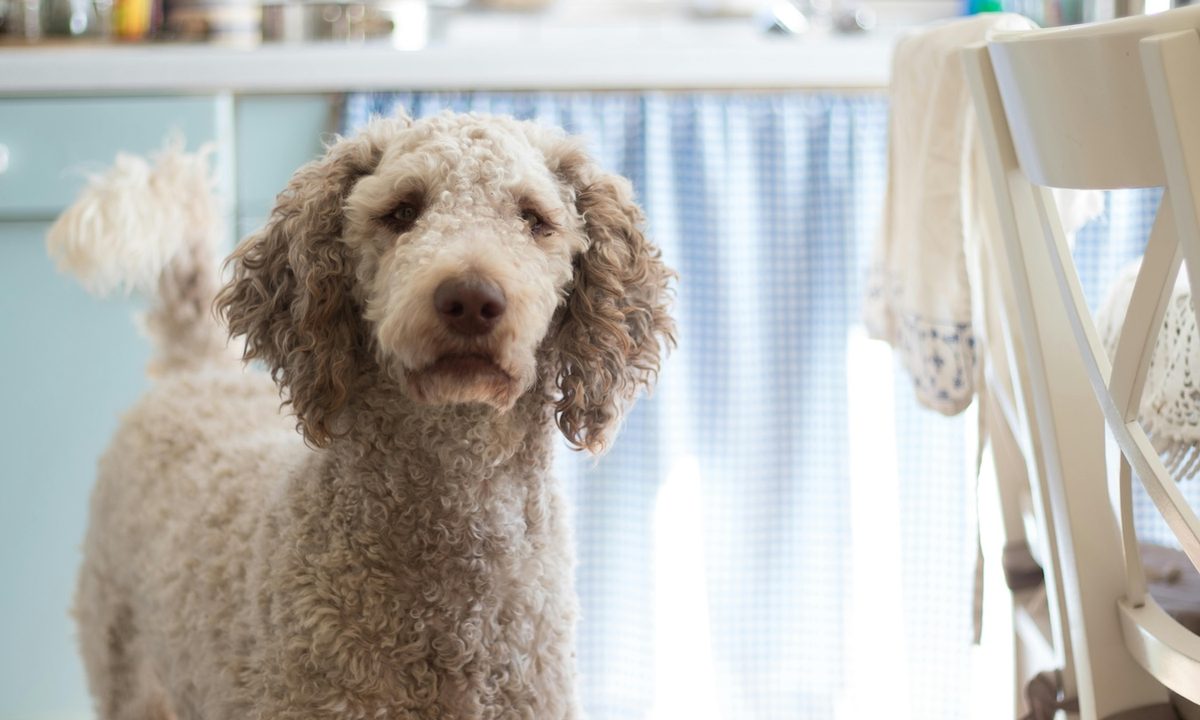The wellness industry made kale happen in the 2010s, a seemingly impossible feat considering the leafy green vegetable leaves a bitter taste in your mouth. However, unlike some GOOP-driven wellness trends, kale has many health benefits for humans. Adding kale to smoothies, salads, and chip recipes nets people numerous nutrients, including folate, fiber, calcium, and vitamins A, C, and K. The vegetable can boost bone and heart health and lower the risk of other diseases.
Kale has also become a part of homemade dog food diets. Naturally, you want your dog to have a long, happy life, and a nutritious diet is a pillar of canine health (humans, too!). Yet, “superfoods” for humans pose health risks for pets (nice to see you there, avocado). Can dogs eat kale? Should they? The answer might surprise you.
Can dogs eat kale?

Healthy dogs can typically tolerate small amounts of kale occasionally. However, pet parents should speak to their furry friend’s vet before giving their dogs kale (or any human food). Vets may discourage people from feeding their dogs kale as part of a homemade diet or regularly, particularly if the pup has health concerns.
While fiber is essential for digestive health in humans and pets, too much can cause GI discomfort, including constipation, bloating, and diarrhea. Additionally, other nutrients, like calcium, can cause kidney problems, especially when eaten in excess (and “excess” is relative and can vary based on a dog’s size and health).
Other vegetables like carrots, cucumbers, and green beans are safer bets because they are lower in calcium.
Is kale good for dogs?
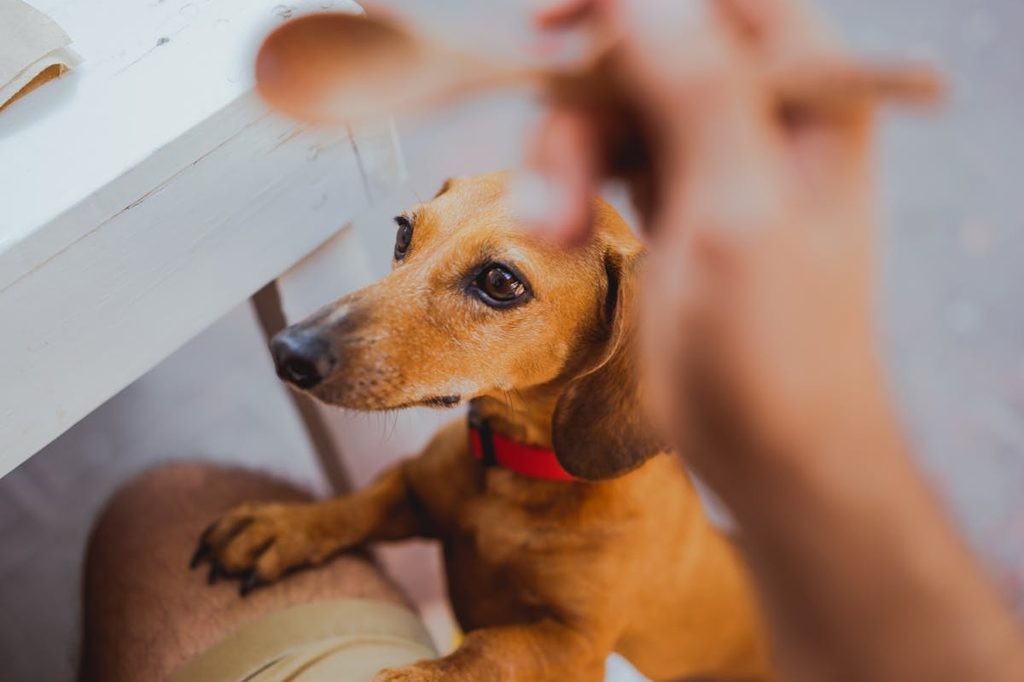
Kale is a nutrient-dense food with vitamins, minerals, and antioxidants that can boost a person’s overall health. Besides fiber, the vegetable has folate (protects against anemia), vitamin C (immune health), and calcium (bone health). However, pups don’t need kale in their diets because they get all the nutrition they need from dog food marked by the AAFCO seal (AAFCO is a nonprofit that sets standards for animal food).
Kale can be a nutritious, low-calorie treat for dogs if they enjoy the taste. Treats can make up about 10% of a dog’s daily calories, while the rest should come from their regular kibble. A vet may recommend giving a dog fewer treats if they need to lose weight or have other health conditions. However, kale may get the green light as an every-once-in-a-while treat because it’s lower in calories than other people foods (and dog treats).
What happens if my dog eats kale?
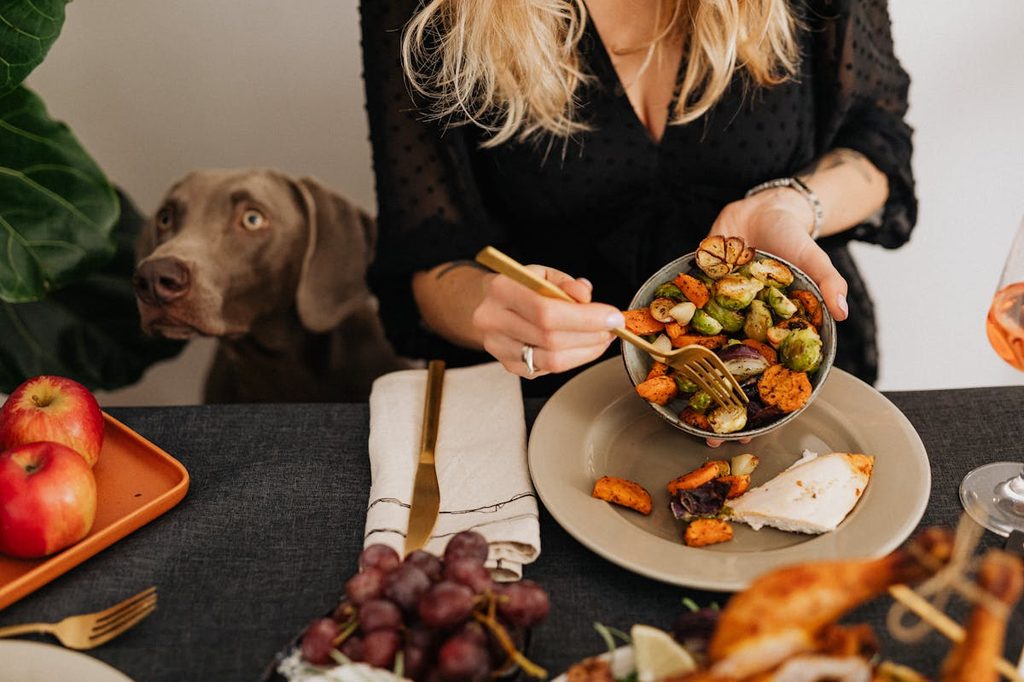
If some kale hits the floor instead of your blender or plate and your dog helps themself, they will probably be OK. A little kale is generally harmless to healthy adult dogs, but every pet’s body is different. You will want to monitor your pup for red flags that the kale isn’t sitting well, including:
- Difficulty urinating, including pain
- Pain during pooping (or not pooping at all)
- Hard stool
- Vomiting
- Diarrhea
- Lethargy
- Weakness
- Decreased appetite
- Decreased or increased thirst
The amount of kale a dog (and their size) consumes can also affect these symptoms. For example, a Chihuahua may throw up after consuming any amount of kale that wouldn’t affect a Great Dane.
Other dogs, regardless of size, should not consume kale. Dogs with a history of kidney or bladder issues should also avoid the vegetable. Its calcium oxalate content can trigger kidney stones, and its fiber can make digestive issues more uncomfortable for dogs prone to them.
How to feed kale to dogs
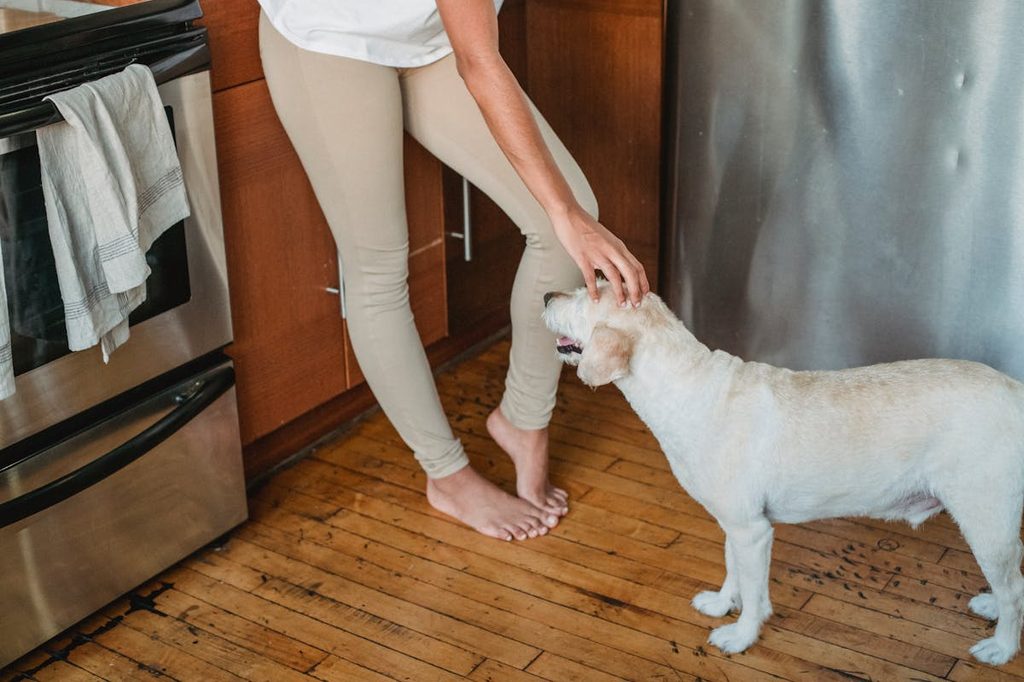
First, talk to your vet to ensure your dog can consume kale and get their take on portion sizes. Once you’ve checked that box:
- Thoroughly rinse the kale to remove pesticides
- Consider cooking the kale to make it more digestible and palatable (avoid seasonings because of toxicity risks)
- Remove the stems
- Chop into small pieces
- Feed the dog a little bit at a time
- Monitor your dog for reactions and refrain from giving them kale if they experience any negative ones
Closing thoughts
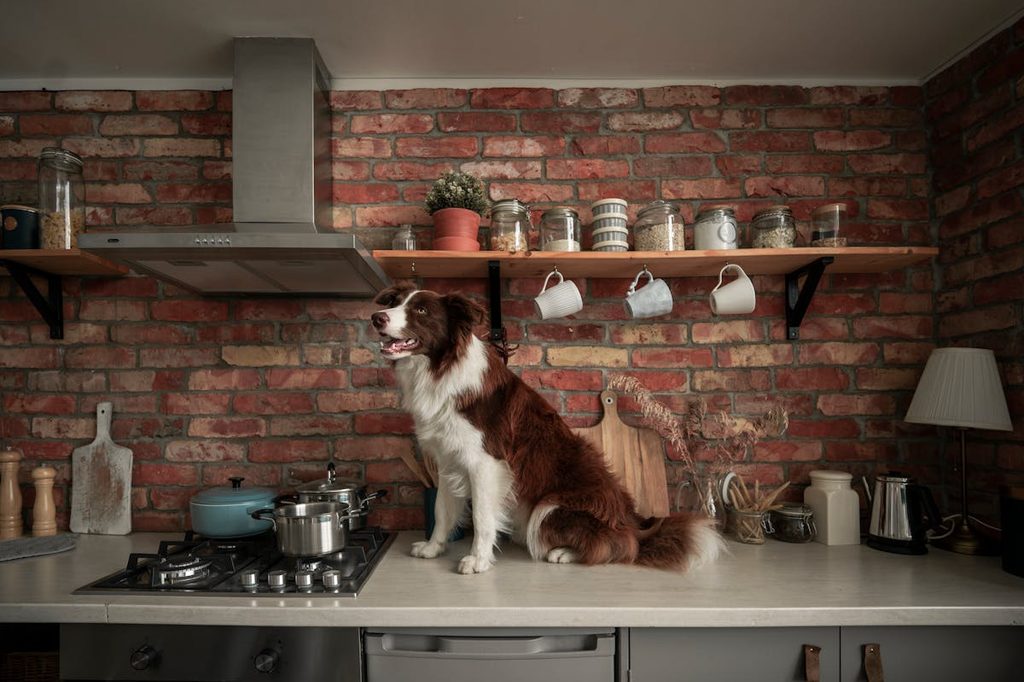
Kale is loaded with nutrients that support human health, but the vegetable doesn’t have “dog superfood” status. Dogs with a history of kidney or bladder concerns should avoid the vegetable because it has calcium oxalate, a compound that can trigger kidney stones. That said, when consumed in moderation, kale is generally harmless to healthy adult dogs.
There’s probably no need to fret if your dog eats kale off the floor, and the vegetable can be considered a low-calorie treat. Monitor your dog for adverse reactions, such as vomiting, and refrain from re-treating them with kale if they experience any. Speak with your vet before giving your dog human food.
